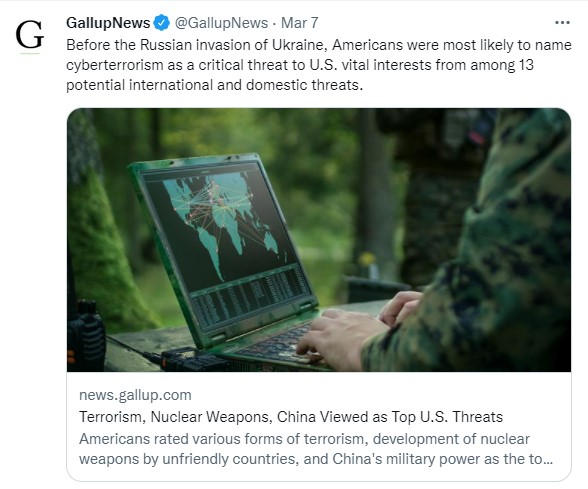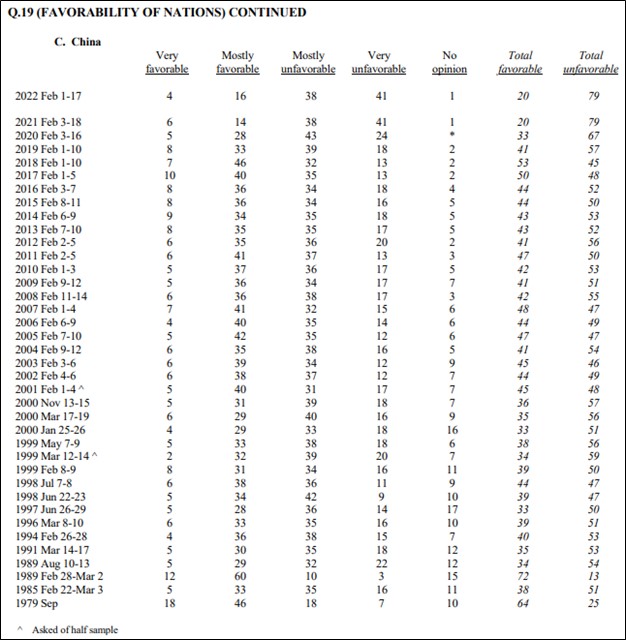 |
| A post on Gallup News’ Twitter account releasing their study on threats to the United States. Image credit: Gallup News Twitter account |
In Gallup’s latest annual World Affairs poll, conducted from February 1-17, the American public’s opinion of China remains at a historic low. The poll, conducted partly during the 2022 Winter Olympics, found that 79 percent of respondents have an unfavorable view of China, with 41 percent answering “very unfavorable.” Only 20 percent of respondents have a “favorable” view of China. The numbers remain largely unchanged from the 2021 poll.
China’s favorability rating is at its lowest since Gallup started to poll American attitudes towards the country in 1979. An on-going trade imbalance, the COVID-19 pandemic, and alleged human rights violations in Hong Kong and Xinjiang likely all contributed to unfavorable opinions. In a 2020 poll by the Pew Research Center, 82 percent viewed China’s human rights policies as a serious problem.
The Gallup poll also found that Americans view China as a “critical” threat to US security. While more respondents identified terrorism (including cyber, international, and domestic) and the development of nuclear weapons by Iran and North Korea as critical threats, anxiety over China’s military power outranked the spread of infectious diseases and climate change in perceptions of being a critical threat. When given a list of possible threats to US interests, 67 percent said that China’s military power is a “critical” threat and 29 percent ranked it as “important;” only 4 percent characterized it as “unimportant.” The concern reached a historic high and even outstripped worries over military threat from Russia. The threat of China’s economic power is also considered “critical” by 57 percent of respondents and “important” by 34 percent. However, concern over China’s economic power fell from 63 percent in 2021.
 |
| From Gallup’s February 1-17 survey, Americans’ favorability of China from 1979-2022. The poll was conducted from February 1-17 via telephone interviews with 1,008 adults and has a margin of error of 4 percentage points. Image credit: Gallup [PDF, 873 KB] |
 |
| A different time: in 2017, Gallup polling found US attitudes to China to be at their highest point. Image credit: CGTN Twitter account |
